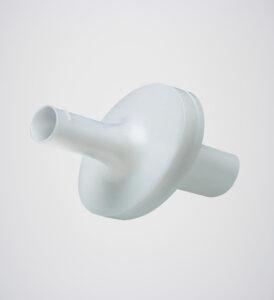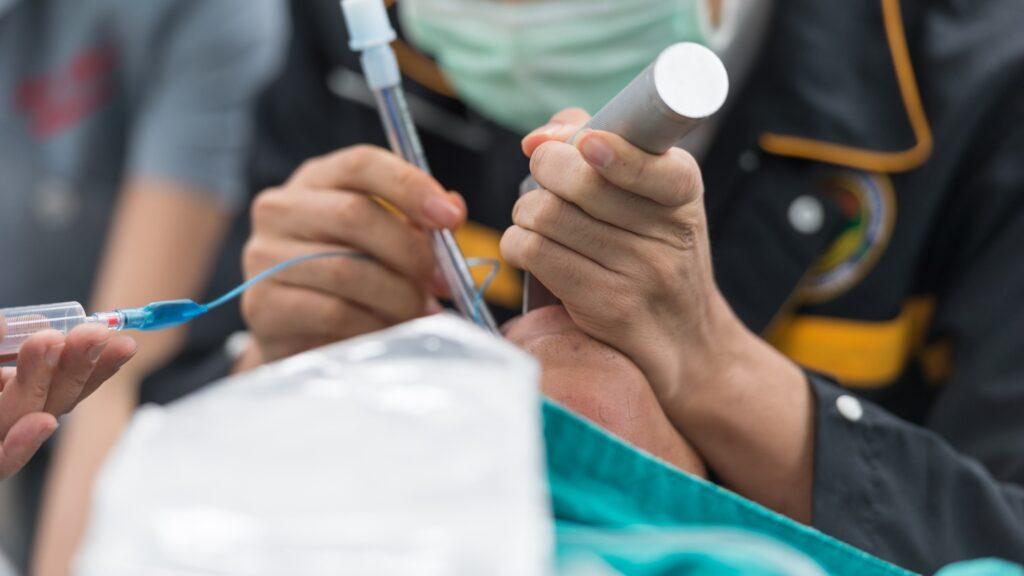Welcome to a blog on PFT filters, a critical component in the realm of pulmonary function testing (PFT). In this extensive blog, we will delve into the world of PFT filters, their significance in ensuring accurate respiratory measurements, and how they contribute to reliable diagnostic results. Additionally, we will unravel the importance of maintaining optimal filter performance, the utilization of high-efficiency filters, and the impact of spirometry devices on lung function assessment. We’ll also shed light on calibration techniques, test preparation guidelines, quality control measures, and maneuver techniques that significantly influence the outcomes of PFT.
Understanding PFT Filters
PFT filters play a crucial role in pulmonary function testing (PFT), contributing to accurate respiratory measurements and providing valuable diagnostic information. Understanding the importance of PFT filters is essential for healthcare professionals involved in conducting PFTs. They act as a barrier that separates the patient from the equipment, preventing bacteria and viruses from spreading. By removing unwanted particles from the exhaled breath, PFT filters help obtain reliable measurements of lung function parameters.
In addition to their filtration capabilities, PFT filters also contribute to accurate measurements by minimizing the impact of humidity and ambient air conditions. These filters help standardize the testing environment, ensuring consistent and reliable results.
Exploring Different PFT Filters
A wide range of filters is available for pulmonary function testing (PFT) to meet diverse testing requirements and patient needs. By exploring different PFT filters, healthcare professionals can select the most suitable option for accurate diagnostic results.
- Electrostatic Filters: These filters attract and capture particles using an electrostatic charge. They offer high-efficiency filtration and optimal airflow during PFT, making them beneficial in environments with airborne allergens or irritants.
- Bacterial/Viral Filters: Designed for advanced pathogen protection, these filters effectively remove bacteria, viruses, and other microorganisms, safeguarding patients and healthcare professionals from infections.
- Heat and Moisture Exchangers (HME): HME filters retain moisture and warmth from exhaled breath, reducing patient discomfort during testing. They are useful in low-humidity environments or for patients with respiratory conditions.
- Hydrophobic Filters: These filters repel water and moisture, preventing liquid accumulation in the equipment. They are suitable for applications with expected liquid presence, ensuring accurate measurements and equipment longevity.
- Combined Filters: Some PFT filters combine multiple filtration mechanisms, offering comprehensive protection and efficiency. They may incorporate electrostatic, bacterial/viral, and hydrophobic properties, and provide a versatile solution for various testing scenarios.
Exploring the different types of PFT filters enables informed decisions based on patient needs and testing environments.
Maintaining Optimal PFT Filter Performance
To ensure the integrity of pulmonary function testing (PFT) results, it is crucial to maintain optimal filter performance. Regularly replacing PFT filters according to the recommended schedule is paramount in minimizing the risk of contamination and inaccuracies. Over time, filters can become clogged with particles and debris, compromising the accuracy of respiratory measurements. By adhering to a diligent replacement schedule, you can uphold the quality of your PFT tests and obtain reliable results.
Furthermore, ensuring the compatibility of filters with the specific PFT equipment being used is essential. Different PFT devices may require filters with varying specifications. Consult the manufacturer’s guidelines or seek expert advice to select filters that are compatible with your equipment. By maintaining optimal PFT filter performance, you can enhance the accuracy and reliability of your respiratory measurements, providing valuable insights into lung function and aiding in the diagnosis and treatment of respiratory conditions.
Enhancing Accuracy with Efficient Filters
Efficiency is paramount when it comes to PFT filters. High-efficiency filters play a crucial role in ensuring accurate measurements and reliable assessment of lung function during pulmonary function testing (PFT). Efficient filters are designed to capture even the tiniest particles, including bacteria, viruses, and other airborne contaminants. These filters effectively remove unwanted elements from the air stream, allowing for precise measurement of respiratory parameters.
Using high-efficiency filters in PFT enhances accuracy and safeguards patients and healthcare professionals from potential health risks. By minimizing the presence of contaminants in the testing environment, efficient filters contribute to a safe and hygienic testing environment.
When selecting PFT filters, pay attention to their efficiency ratings and specifications. Look for filters that meet industry standards and are designed to provide optimal filtration performance. Consulting with experts or reputable suppliers can assist in choosing filters that best suit your specific PFT requirements.
Exploring Spirometry Devices
Spirometry devices are essential tools in the field of pulmonary function testing (PFT), enabling accurate measurement of lung function for diagnosis and treatment purposes. These devices play a vital role in evaluating respiratory health, assessing lung capacity, and detecting abnormalities or restrictions in airflow.
They consist of a flow sensor, a mouthpiece or face mask for the patient, and a data display or recording system. The patient is instructed to inhale deeply and then exhale forcefully into the device, allowing for accurate measurement of lung volumes and flow rates. These devices offer several advantages in pulmonary function testing. First, they provide real-time feedback, allowing healthcare professionals to assess the quality and reliability of the test maneuver during the patient’s exhalation.
Ensuring Accuracy through Calibration
Calibration is an integral aspect of pulmonary function testing (PFT), ensuring precise and reliable measurements. Regular calibration of PFT equipment is essential to maintain accuracy, reduce measurement errors, and uphold the integrity of diagnostic results. Let’s delve into the importance of calibration in PFT and understand how it contributes to accurate lung function assessment.
PFT equipment, including spirometers, plethysmographs, and gas analyzers, require calibration to establish a reference point for accurate measurements. Calibration involves comparing the equipment’s readings to a known standard or traceable device to identify and correct any deviations. It helps to minimize systematic errors, instrument drift, and variations in measurement accuracy that may occur over time.
The calibration process typically involves the use of calibration gases, flow syringes, and calibration adapters. These tools allow healthcare professionals to verify the accuracy of the equipment’s flow rates, volumes, and gas concentrations. Regular calibration ensures that the equipment is functioning optimally, providing reliable data for accurate diagnosis, treatment planning, and monitoring of respiratory conditions.
Preparing for a PFT Test
Preparing patients adequately before undergoing a pulmonary function test (PFT) is crucial to ensure accurate and meaningful results. By following essential steps and guidelines, healthcare professionals can optimize the testing process.
- Patient Education: By providing patients with information about the pulmonary function testing (PFT) procedure, we can alleviate any anxiety they may have and promote their cooperation during the test. This education involves explaining the purpose of the test, detailing the equipment used, and giving an estimate of the expected duration.
- Medication Instructions: Inform the patient about any medications that need to be adjusted or temporarily discontinued before the test. Some bronchodilators and respiratory medications can affect test results, so following specific guidelines is essential.
- Fasting Guidelines: Instruct the patient regarding fasting requirements, if applicable. Certain PFTs, such as spirometry, may require the patient to refrain from eating or drinking for a specified period before the test.
- Clothing Recommendations: Advise the patient to wear comfortable clothing that allows unrestricted movement during the test. Tight-fitting garments or accessories like belts may hinder proper breathing and affect test accuracy.
- Respiratory Hygiene: Prioritizing respiratory hygiene is crucial for maintaining optimal lung health. It involves adopting habits that promote clean and healthy airways, such as avoiding smoking, minimizing exposure to respiratory irritants, and refraining from engaging in strenuous physical activity before undergoing a pulmonary function test.
- Clear Instructions: Provide clear instructions on proper breathing techniques for each maneuver during the PFT. Ensure the patient understands the instructions and can perform the maneuvers correctly.
- Emotional Support: Create a supportive and reassuring environment for the patient. Address any concerns or questions they may have, and offer encouragement throughout the process.
Enhancing Quality Control in PFT
Enhancing quality control in pulmonary function testing (PFT) is vital for ensuring accurate and reliable results. Implementing essential practices helps healthcare professionals uphold the highest standards in PFT. These practices include.
- Regular Equipment Checks: Routine inspections and maintenance of PFT equipment to identify and address any physical damage or malfunctioning components.
- Calibration: Regular calibration of PFT equipment according to manufacturer guidelines to ensure accurate measurements and eliminate deviations or errors.
- Adherence to Testing Standards: Following established testing standards and guidelines set by professional organizations or regulatory bodies to maintain consistency and comparability of results.
- Data Verification: Implementing procedures to verify the accuracy and integrity of recorded data, such as patient information and maneuver data, to minimize errors.
- Staff Training and Competency: Providing comprehensive training to PFT technicians and healthcare professionals involved in conducting and interpreting tests to ensure accurate procedures and result interpretation.
- Quality Assurance Programs: Participating in quality assurance programs and external proficiency testing to benchmark performance and identify areas for improvement.
- Documentation and Record-Keeping: Maintaining detailed records of PFT procedures, including patient demographics, test results, and implemented quality control measures.
By implementing these quality control measures, healthcare professionals can optimize the accuracy, reliability, and consistency of PFT results.
Mastering PFT Maneuvers
In the realm of pulmonary function testing (PFT), mastering the various maneuver techniques is essential for accurate lung function assessment. These maneuvers involve specific breathing patterns and actions that allow healthcare professionals to measure different aspects of respiratory function. By understanding and executing these maneuvers correctly, healthcare providers can gather precise data to aid in the diagnosis, treatment planning, and monitoring of respiratory conditions.
Spirometry is one of the most common PFT maneuvers, which measures lung capacity and airflow. This maneuver helps assess lung volumes, airflow rates, and the presence of any obstructions or restrictions in the airways.
Methacholine challenge testing is yet another maneuver used to assess airway hyperresponsiveness, a characteristic feature of conditions like asthma. During this test, patients inhale increasing concentrations of methacholine, a substance that causes airway constriction. The degree of airway narrowing is then measured to evaluate bronchial sensitivity.
Assessing Bronchodilator Response
Unlocking the effectiveness of medication in improving lung function and managing respiratory conditions, assessing the bronchodilator response plays a crucial role in pulmonary function testing (PFT). This test provides valuable insights into the responsiveness of the airways and helps diagnose and monitor conditions like asthma and COPD.
Before administering the bronchodilator, baseline pulmonary function measurements are taken, including spirometry, which assesses lung volumes and airflow rates. Additional tests like PEFR and FEF may also be conducted. A waiting period is observed after the medication is given, typically 15 to 30 minutes, followed by post-bronchodilator measurements. These measurements gauge the changes in lung function and determine the response to the medication.
PFT Filters From Leading Indian Manufacturers
PFT filter – MSI 1223
Introducing the PFT filter – MSI 1223 by Medisafe International, a remarkable device designed specifically for pulmonary function testing and spirometry. With its exceptional filtration efficiency, this filter ensures the purity of air during respiratory tests, boasting a bacteria filtration efficiency of 99.99% and a viral filtration efficiency of 99.9%.
The PFT filter – MSI 1223 features a luer lock port, enabling secure and hassle-free connections. Its innovative design ensures a tight and leak-proof seal, enhancing the testing experience and promoting accurate results. This versatile filter is compatible with various air filter systems used in pulmonary function testing, making it an essential component for healthcare facilities, clinics, and diagnostic centers.
Choose the PFT filter – MSI 1223 for its outstanding performance, disposable convenience, and compatibility with air filter systems. Medisafe International, a trusted name in the industry, brings you this high-quality device from India, providing healthcare professionals with the precise and reliable tools needed for pulmonary function testing.
Conclusion
In conclusion, PFT filters serve as crucial components in the realm of pulmonary function testing, ensuring the integrity and accuracy of respiratory measurements. By understanding the importance of these filters, exploring the different types available, and maintaining optimal performance, healthcare professionals can enhance the quality of PFT results. Additionally, the utilization of efficient filters and mastering maneuver techniques further contributes to accurate lung function assessment. The bronchodilator response test emerges as a valuable tool for evaluating the effectiveness of medication in managing respiratory conditions. With Medzell, a futuristic B2B platform promoting Indian medical devices in emerging markets, healthcare providers gain access to innovative solutions for PFT. Embracing the advancements in PFT filters and equipment, and adhering to quality control measures, we can unlock the full potential of pulmonary function testing, ultimately improving patient care and outcomes. Experience the power of PFT filters and embark on a journey toward precise respiratory diagnostics with Medzell.



